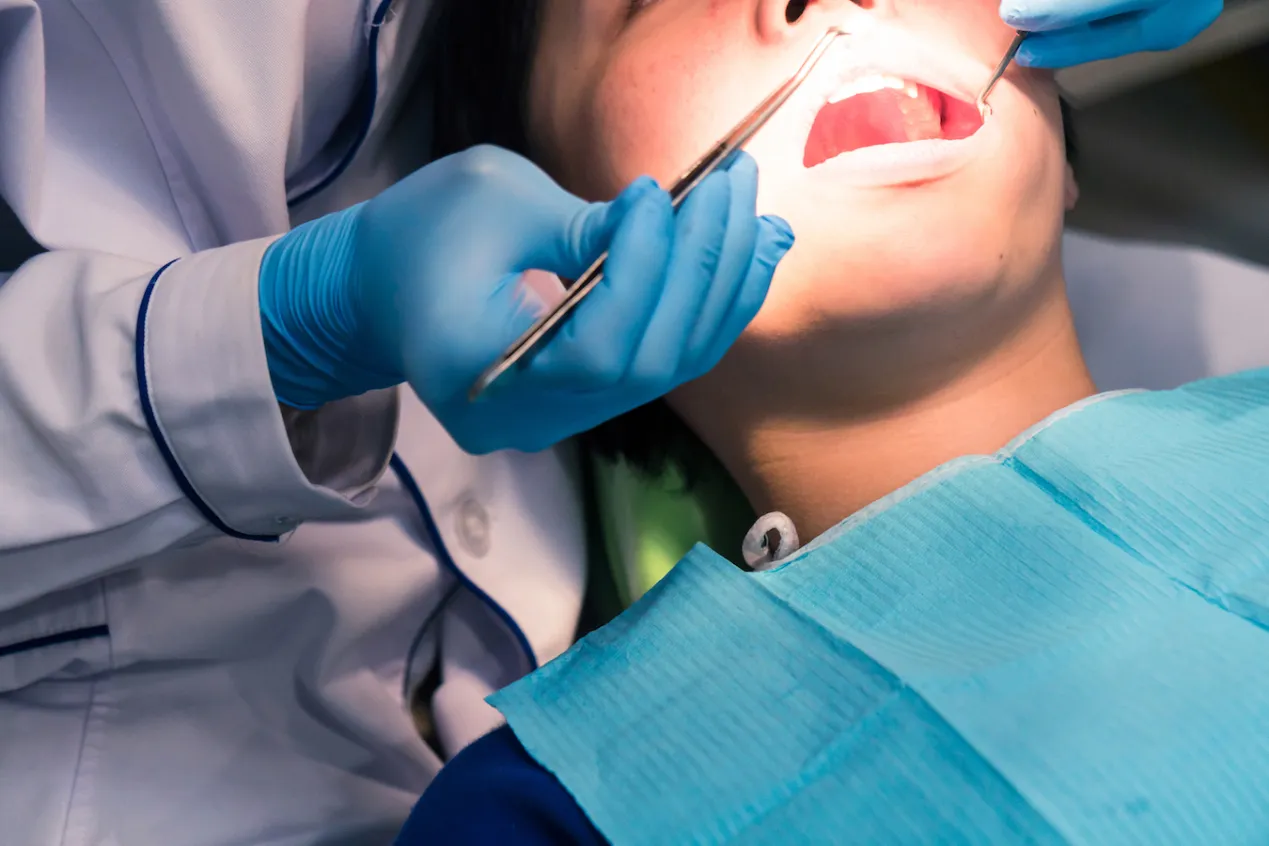What to Anticipate from Your Very First Visit to a Dentist in Eugene Oregon
What to Anticipate from Your Very First Visit to a Dentist in Eugene Oregon
Blog Article
A Guide to Typical Oral Problems That Require a Dentist's Treatment
Toothaches, for example, can be symptomatic of severe issues such as cavities, split teeth, or abscesses, each needing details interventions like dental fillings or origin canals. Influenced knowledge teeth and jaw conditions can present significant discomfort and difficulties.
Toothaches
Toothaches are a typical dental condition that can range from mild discomfort to extreme discomfort, usually showing a hidden issue that requires professional focus. This discomfort can come from a range of sources, consisting of dental cavities, cracked or fractured teeth, and oral abscesses. Each of these conditions positions considerable threats if left neglected, possibly causing a lot more extreme issues.
Tooth decays, also recognized as decays, are caused by the buildup of plaque that deteriorates tooth enamel, resulting in holes or pits in the impacted teeth (eugene dentist). Cracked or fractured teeth, on the various other hand, may arise from trauma, grinding, or attacking right into difficult objects. These architectural problems can subject the delicate internal layers of the tooth, triggering acute pain and increasing the threat of infection. Abscesses hurt infections at the origin of a tooth or in between a tooth and the gum, usually resulting from serious degeneration or without treatment dental caries.
Reliable therapy of toothaches involves attending to the source. This may consist of dental fillings for dental caries, crowns for fractured teeth, or origin canals and antibiotics for abscesses. Very early intervention by a dental professional can avoid more degeneration and reduce discomfort, making certain optimal dental health and wellness.
Gum Illness
Periodontal disease, a common yet commonly ignored dental condition, shows up via inflammation and infection of the gums and supporting tissues. This problem mainly happens in two stages: gingivitis and periodontitis. Gingivitis, the milder kind, provides with signs such as red, inflamed gum tissues that might hemorrhage quickly throughout brushing or flossing. If left without treatment, gingivitis can proceed to periodontitis, a much more serious kind characterized by the damage of the supporting bone and connective tissue, inevitably resulting in tooth loss.
The main source of periodontal illness is bacterial plaque, a sticky, colorless movie that constantly bases on teeth. Poor oral health, smoking cigarettes, hereditary tendency, and particular clinical problems, such as diabetes mellitus, can intensify the danger of establishing periodontal condition. Regular oral exams are crucial for early detection and management of this condition.
Treatment for gum disease ranges from specialist oral cleaning and scaling to advanced treatments like origin planing and gum surgical procedure, depending on the severity. Keeping excellent oral hygiene techniques, including cleaning twice daily, flossing, and using an antiseptic mouthwash, can significantly lower the danger of gum disease and advertise much healthier gum tissues.
Cavities
Tooth cavities, also referred to as dental decays, are a common dental condition identified by the devastation of tooth enamel as a result of acid-producing germs in the mouth. These microorganisms prosper on sugars and starches from food and drinks, creating acids that slowly erode the enamel, resulting in tooth cavity development.
Early-stage tooth cavities may disappoint signs and symptoms, however as they progress, they can create toothache, sensitivity to cold or hot, visible holes or pits in the teeth, and discoloration. If left untreated, tooth cavities can penetrate deeper layers of the tooth, possibly leading to extreme discomfort, infection, and even site web missing teeth.
Avoiding cavities involves a combination of excellent oral hygiene methods and nutritional habits. Normal brushing with fluoride toothpaste, flossing, and routine dental examinations are vital. Dental professionals may likewise advise additional preventative measures, such as fluoride treatments and dental sealers, to secure teeth from decay.
Treatment for dental caries depends on their intensity. Small dental caries can be resolved with oral fillings, which recover the tooth's structure. Advanced instances may need crowns and even root canal therapy if the degeneration has actually gotten to the tooth's pulp. Timely treatment by a dental practitioner is important to prevent issues and preserve general oral health and wellness.

Impacted Knowledge Teeth
Influenced knowledge teeth are a prevalent dental concern that happens when the 3rd molars, commonly referred to as knowledge teeth, fail to completely arise or align appropriately within the mouth. This problem typically arises from not enough area in the jaw or an uncommon growth angle of the teeth. Impacted wisdom teeth can bring about a variety of problems, including damages, infection, and discomfort to nearby teeth.
When knowledge teeth come to be impacted, they are commonly partly appeared or continue to be entirely beneath the gum line. This partial eruption can create a path for bacteria to go into the gum tissues, causing infections that manifest as swelling, pain, and even fever. In site link addition, impacted wisdom teeth can exert stress on surrounding teeth, possibly triggering crowding or moving.
A thorough dental examination, usually entailing X-rays, is crucial for diagnosing influenced knowledge teeth. Therapy typically includes surgical extraction, executed by an oral doctor. The treatment aims to reduce discomfort and prevent more issues, such as cysts or damage to surrounding bone structures. Post-operative care is important to make sure appropriate healing and minimize the risk of infection. Routine dental exams are a good idea to check the problem and preserve dental wellness.
Jaw Conditions
Jaw disorders, jointly understood as temporomandibular joint (TMJ) disorders, include a variety of problems that impact the jaw joint and bordering muscles. These conditions can manifest through signs such as discomfort or tenderness in the jaw, trouble chewing, a popping or clicking noise when opening or shutting the mouth, and even chronic headaches. TMJ disorders can emerge from different factors, including joint inflammation, jaw injury, or habitual behaviors like teeth grinding or jaw clenching.
Medical diagnosis of TMJ disorders usually involves a detailed evaluation by a dental expert, including a physical exam of the jaw, go now dental X-rays, and occasionally progressed imaging strategies like MRI or CT scans to examine the joint's problem. Therapy choices differ depending on the severity of the disorder. Non-invasive techniques such as physical therapy, oral splints, and medications targeted at minimizing inflammation and pain are typically first-line treatments. In more severe situations, surgical treatments may be necessary to deal with structural problems within the joint.
Very early intervention by a dental expert is critical to stop the progression of TMJ conditions and to keep general oral health. People experiencing persistent jaw discomfort or dysfunction should look for punctual analysis and therapy.
Final Thought
Toothaches typically show underlying issues such as dental caries, fractured teeth, or abscesses, requiring punctual treatment. Influenced knowledge teeth and jaw disorders likewise call for expert attention to ease discomfort and protect against additional difficulties.
Dental dental caries, likewise understood as decays, are created by the accumulation of plaque that erodes tooth enamel, leading to openings or pits in the affected teeth. Abscesses are excruciating infections at the origin of a tooth or in between a tooth and the periodontal, normally resulting from severe decay or without treatment dental caries.

Additionally, affected wisdom teeth can apply pressure on bordering teeth, potentially triggering crowding or shifting.
Report this page